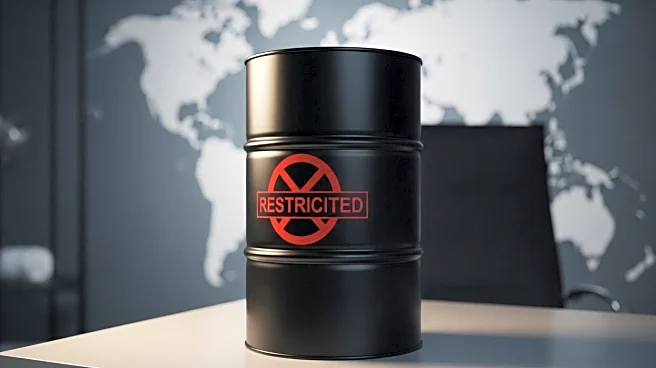What is the story about?
What's Happening?
The Trump administration has imposed sanctions on 50 individuals, companies, and ships, primarily from the United Arab Emirates, Hong Kong, and China, for allegedly facilitating the shipment of Iranian oil and liquefied petroleum gas. These sanctions are part of President Trump's executive orders aimed at driving Iran's oil exports to zero. The sanctions restrict access to U.S. properties and financial assets and prohibit U.S. businesses and citizens from engaging with the sanctioned entities. The Treasury Department highlighted the role of these entities in enabling Iran's government to export billions of dollars worth of oil and gas products.
Why It's Important?
These sanctions are a continuation of Trump's 'maximum pressure' strategy on Iran, intended to deny Tehran access to nuclear weapons. The sanctions are expected to further squeeze Iran's economy, which is already under strain due to previous sanctions and the reimposition of United Nations sanctions over its nuclear program. The Iranian rial is at a record low, exacerbating food price increases and daily life challenges for Iranians. The sanctions also reflect ongoing geopolitical tensions and the U.S.'s efforts to curb Iran's influence in the region.
What's Next?
The sanctions are likely to impact U.S.-Iran relations further, with potential retaliatory measures from Iran. The international community may respond with diplomatic efforts to address the escalating tensions. The U.S. administration may continue to target additional entities involved in Iran's oil trade, as part of its broader strategy to isolate Iran economically.
Beyond the Headlines
The sanctions highlight the complex interplay between international trade, geopolitics, and national security. They underscore the challenges in balancing economic interests with foreign policy objectives, particularly in regions with significant geopolitical tensions.
















